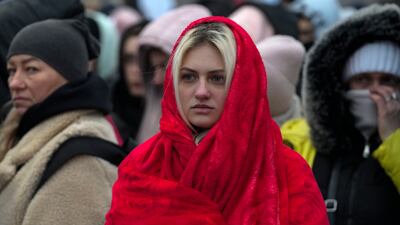The first International Women's Day (IWD) was observed in 1911. Since then, it has not been an easy road, but the world has seen considerable progress towards equality between the sexes. Two world wars resulted in women filling, en masse, jobs previously reserved for men. This opened the door to general recognition in many countries that women must be a part of the wider economy, too. An expansion in women's education and political representation have been vehicles for change.
They should have been. One hundred and eleven years is a long time. Unfortunately, it has still not been enough. The World Economic Forum's (WEF) 2021 gender report predicted that the global gap in equality is not expected to close for another 135 years. The WEF also claimed that in recent years the situation has been deteriorating, in large part due to the disproportionate impact of Covid-19 on women.
Internationally, the situation has not improved this year. Global recovery from the virus is still unequal and of the 1.5 million refugees fleeing Ukraine, the majority are women and children as men stay home to fight. The number could eventually reach as high as 10 million. The conflict's effect will be global and felt throughout the world. It is already threatening the Middle East’s food supply. Women, among the most vulnerable to instability, are set to lose out disproportionately.
Those fighting for change must brace themselves for the likelihood that 2022 will see more deterioration than improvement. But successes should still be celebrated today and used to inspire more change. Egypt should be encouraged for one trend in particular. The UN has recorded a sharp drop in cases of female genital mutilation (FGM) in the country. Today, 52 per cent of women between the ages of 13 to 17 have suffered from it. These rates are still horrifically high, but nonetheless are a decrease of almost 40 per cent from rates among their mothers. Government actions and education are helping and must continue. Last year, Egypt sentenced a nurse to 10 years in prison for carrying it out on a teenage girl. Hopefully there will be more prosecutions in 2022.
Saudi Arabia has also had an impressive year, particularly regarding female employment. Last month, The National reported that a drive to recruit 30 female train drivers attracted 28,000 applicants. This is one story among many of new jobs opening up for Saudi women.
The UAE continues to be a leading centre of women in Stem subjects (science, technology, engineering and mathematics). A 2018 study found that almost half of engineering graduates were women. In Germany, Canada and the UK, the figure was 20 per cent or lower. More generally, the UAE ranked first across the Arab world in the WEF's gender equality report for 2021.
While progress might seem unfairly distant for many who are less fortunate, both men and women should keep in mind that the Mena region is more than capable of not just enacting change, but leading it. It is worth remembering that the world's first university, Al Qarawiynn in Fes, was established by a woman from the region, Fatima Al Fihri, in 895 AD.
These are the two facets that make IWD so important: remembering and celebrating success to inspire progress, while also assessing the many areas where it is needed. If the WEF's trajectory is right, it will have taken almost 250 years since the first IWD to reach gender equality. Today, society and governments must think about how this unacceptable length of time can be cut.


